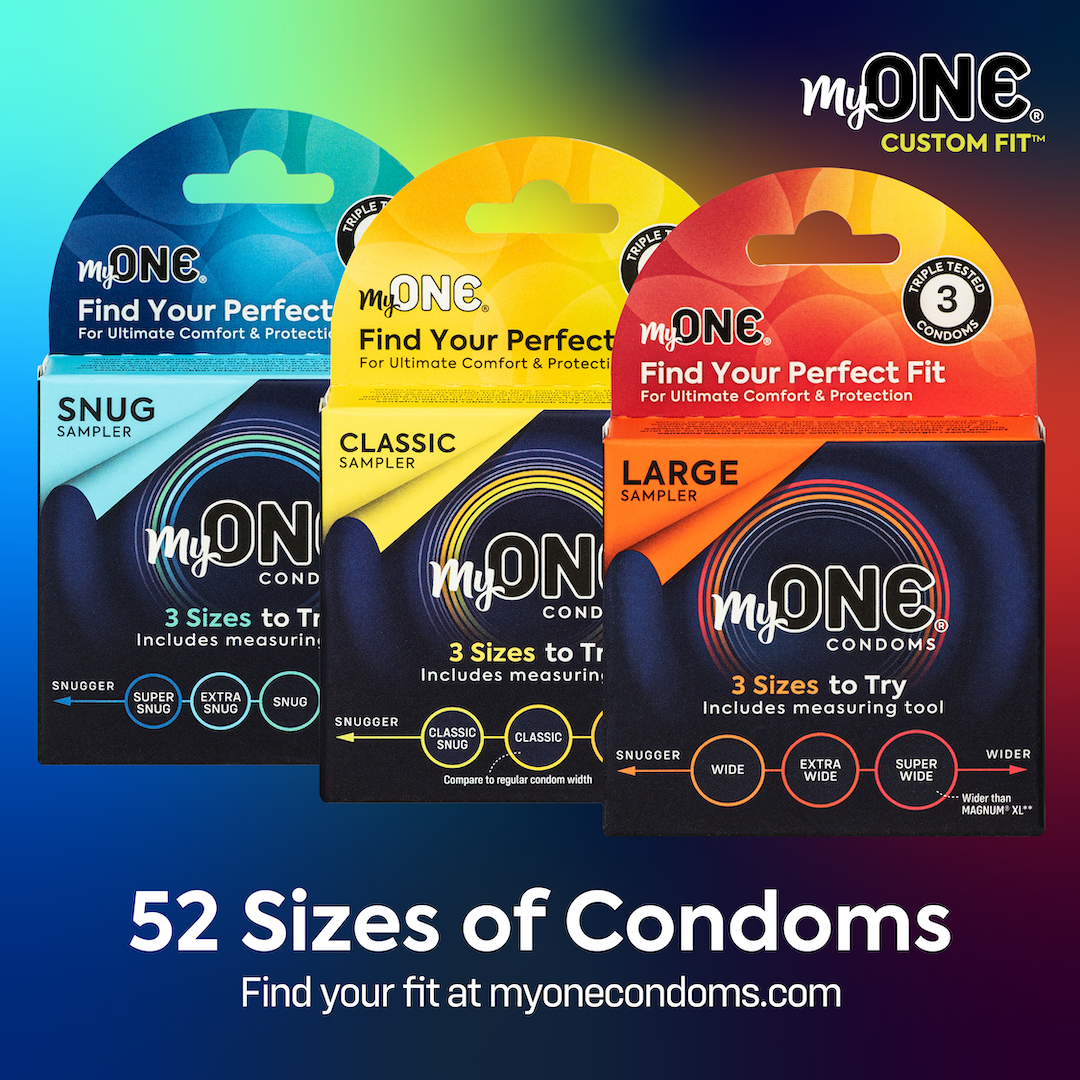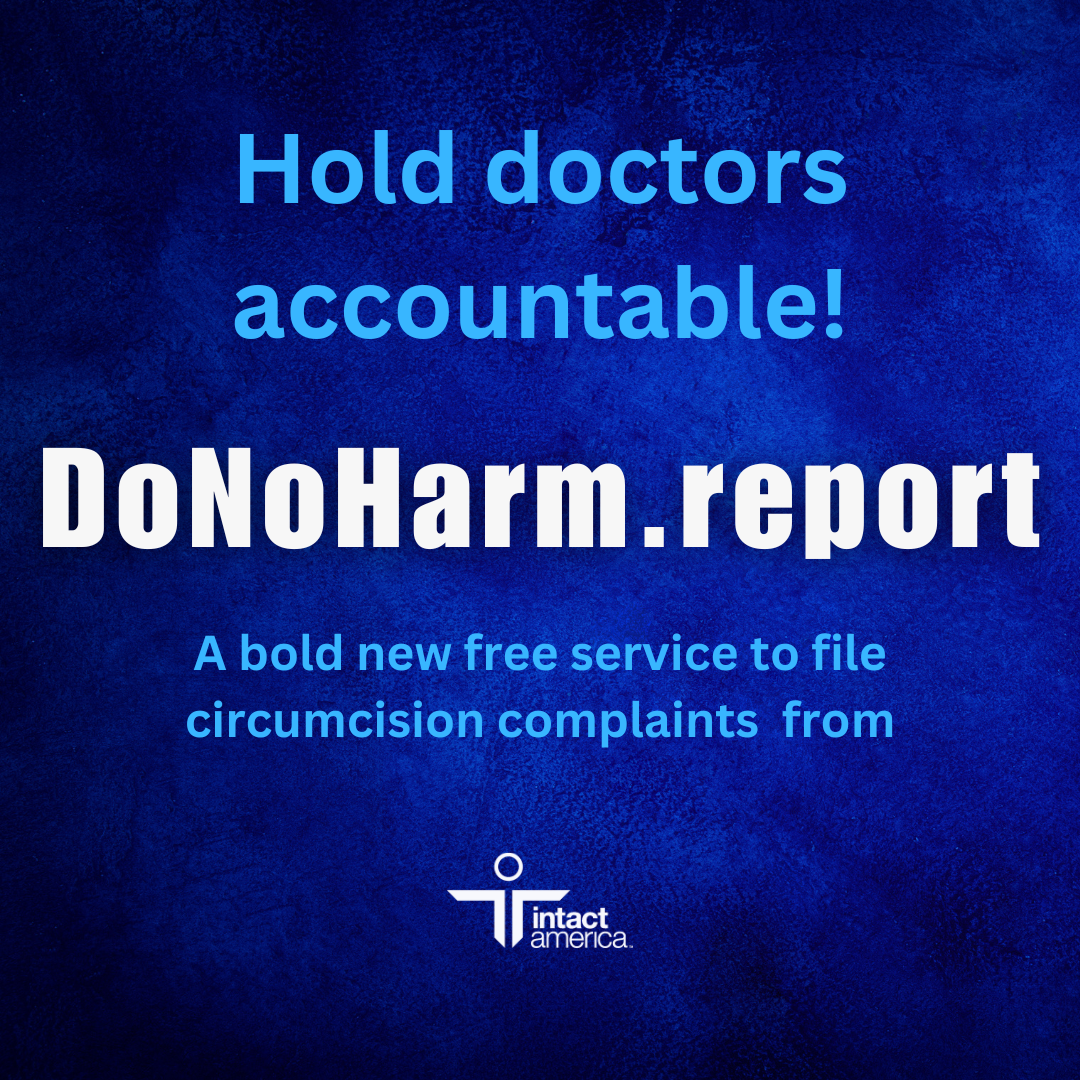
In mental health and therapy settings, the lifelong and life-altering impact of trauma—especially in babies and children, called adverse childhood experiences (ACE)—is becoming far more recognized. More and more therapists and psychologists are specializing in trauma-informed care. One area where there is great need, however, stands out for its neglect: Male circumcision trauma is treated as if it does not fall under the umbrella of general trauma, nor is it currently included on the ACE list. This unnecessary surgery’s enormous impact on men and society is largely obscured in the United States, because open discussion about the trauma it causes is taboo.
“Men circumcised as infants have reported experiencing anger, sadness, shame, and denial over having their genitals altered without their consent. Some men have experienced symptoms of post-traumatic stress disorder (PTSD), depression, anger, and intimacy problems, which they directly associate with their feelings about being circumcised.” — PsychologyToday.com
Many factors play into the lack of recognition and awareness around circumcision trauma, including:
- Medical Perspective: Historically, the medical community in the United States—where this pay-for-fee cosmetic surgery is now the most common pediatric surgery—has been promoted as a “routine procedure” with minimal risks. Moreover, there has been limited attention given to the psychological effects of medical procedures performed during infancy, and virtually no studies have been done on the impact of male genital cutting on adult men and teens.
- Lack of Awareness: The psychological impact of circumcision is frequently overlooked due to a lack of widespread public awareness or open discussion. Many men and women in the U.S. have never seen an intact, natural penis with its glans protected by its foreskin. Even most medical books in the U.S. fail to show the natural penis. Some men aren’t even aware that they’ve been circumcised until well into adulthood.
- Normalization of Procedure: After World War II, the birth process increasingly took place in a hospital setting, and circumcision became more and more commonly performed on male infants within hours or the first few days of birth. Now the majority of men in the U.S. have been circumcised, a surgery that is uncommon in most other parts of the world. Consequently, the experiences of those who suffer trauma as a result of male genital cutting may be trivialized or disregarded.
- Limited Research: The scarcity of comprehensive research on the long-term psychological effects of circumcision has led to most men suffering in silence, unaware that others have experienced problems as a result of surgery done without their consent. Without substantial scientific data to support claims of trauma from circumcision, these experiences may not be given the weight they deserve.
- Gender Norms and Expectations: In certain cultures, including the U.S., males are shamed for expressing pain or trauma, leading to hesitancy in acknowledging or discussing the negative experiences associated with circumcision.
- Cultural and Religious Norms: Circumcision holds cultural and religious significance in some societies and is regarded as a longstanding tradition rather than a source of immense trauma. In those cultures, the ceremony and cultural acceptance overshadows individual experiences of pain, grief, or distress.

How Circumcision Trauma Affects Males
Circumcision trauma can have a wide range of negative effects on males, encompassing both physical and psychological impacts, from immediate pain and discomfort to potential long-term complications.
The pain experienced during circumcision can be particularly distressing for newborns and infants, who are strapped to a circumstraint and typically cut with no pain relief beyond a topical anesthetic. (Newborns and children under six months old cannot tolerate anesthesia. Many medical practitioners may perform the surgery ranging from a first-year medical student to a pediatric urologist. When the foreskin is amputated, it permanently reduces the size of the penis and removes the protective covering of the head of the penis along with some of the most sensitive parts of the sexual organ.
Complications may result in severe issues, such as excessive bleeding, which can be life-threatening; infection; or in rare instances, surgical errors that so damaged the penis that most of it had to be removed. For adult men, altered sensitivity and changes in sexual function are serious concerns. These physical complications can lead to prolonged discomfort from being “cut too tight,” which can make it impossible to experience an erection without pain and sometimes bleeding.
“Circumcision meets the clinical definition of trauma as it involves a violation of physical integrity. Research indicates that medical traumas in childhood and adolescence share psychological elements with childhood abuse, such as physical pain, fear, loss of control, and perception of the event as a form of punishment. Procedures involving children’s genitals have been found to produce negative psychological effects similar to those of childhood sexual abuse, including dissociation and the development of a negative body image.” — PsychologyToday.com
The psychological impact of circumcision is a complex and multifaceted matter. For some men, especially those circumcised later in life or those who have faced complications, there can be a deep sense of loss or violation. It’s as if their autonomy was taken away, leaving them with a feeling of incompleteness or anger towards their circumcised state. These emotions can even manifest as a form of bodily dysmorphia or dissatisfaction.
In cultures where circumcision is not the norm, circumcised males may also experience a sense of being different or abnormal. This can have a profound effect on their self-esteem and body image. The negative experiences of some men are further amplified by societal and cultural norms. In societies where circumcision is widely practiced, those who have negative feelings towards their circumcision may feel isolated, shunned, shamed, or afraid of being shut out of the community.
In cultures where circumcision is less common, circumcised males may feel a sense of otherness. They may struggle to fully identify with cultural norms surrounding the body. This dichotomy can be particularly difficult for individuals who navigate between different cultural contexts. Their circumcision status may be viewed as either the norm or an anomaly, depending on the situation.
This wall of silence surrounding circumcision exacerbates feelings of isolation for those who have been negatively affected by the procedure. We have a responsibility to create a space where individuals can share their stories, find support, and work toward healing.
“A comprehensive study involving 1072 pre-adolescent and adolescent boys who underwent circumcision in a hospital setting found that 51 percent of these boys met the full diagnostic criteria for PTSD. This rate is significantly higher than the PTSD rate among veterans of the Iraq war, which is approximately 20 percent.” — PsychologyToday.com
A common refrain I’ve heard, even from intactivists, is that intactivism should be focused on helping people who can still be kept intact or who feel victimized by the irreversible surgery—not those who do not feel that they have been affected. The reasoning I’ve been given for this lack of focus is that we don’t want to stir up shame, exacerbate body dysmorphia and dissatisfaction, or make anyone feel incomplete. However, I’d liken this way of thinking to the same mindset that would tell someone to use mind over matter to overcome the lingering long-term effects of an old injury or wound. Circumcision is often referred to as a kind of amputation. Once the damage is done, it’s done. However, in my personal opinion, in the case of male genital cutting, someone who has been mutilated deserves to know that they are not alone in their experiences.
For example, my father and I have discussed circumcision at length. Neither of us relates to the idea that we are “victims” simply because of the strength of that word. However, we have learned how being circumcised has affected us throughout our lives—perhaps even more so in our adult lives. For instance, keratinization, the biological process that occurs in the glans (the head) of the penis following circumcision, leaves it exposed. In turn, the penis begins to lose sensitivity and often changes color, going from more of a pink to a gray tone. The absence of the foreskin causes the glans to become less and less sensitive from the day-to-day friction of clothing and the missing natural lubrication that the foreskin would have provided.
So if men like my dad and I could spend a large part of our lives unaware of how our circumcision affected us, does it still count as trauma? We lacked the context to know the difference because, of course, we were cut almost the moment we left the womb. I can say that only after reading more about what circumcision does could I understand why I do not feel as sexually sensitive as I once did. Being less sensitive has often also made me feel disconnected from sexual partners because I have to work to experience any sort of deep pleasure. I still enjoy sex, but the decreased sensitivity means that it often takes me a considerable amount of time to climax. What I didn’t know for the majority of my adult life is that I wasn’t feeling this way because of some flaw in my romantic partners. I was feeling this way because one of the most sensitive parts of my body was missing.
The problem is that I wouldn’t have known this fact if I hadn’t begun to learn more about the role of the foreskin and the long-term consequences of circumcision. Having this information has allowed me to stop blaming anyone else for my feelings of disconnectedness and to understand that what was done to my dad, me, and countless other boys and men is not natural. We are supposed to be intact. I believe that making people aware of how circumcision affects them could save marriages and relationships and improve intimacy and communication.
“It astonishes me that in talking about sex, pretty much nobody mentions that most adult men in the United States today have been deprived of the most pleasurable, sensitive part of their penises. Without a foreskin and its sensory feedback, a man has difficulty controlling the timing of his orgasm. Also, because he’s missing the very organ that serves a gliding and lubricating function—and because he has a scar where his foreskin used to be—his penis is calloused and dry when compared to that of an intact man; this creates friction during intercourse and compromises the pleasure of both sexual partners. Don’t believe me? Then explain the uniquely American proliferation of lubricants and masturbation creams, the existence of which many Europeans—most of whom are intact—find strange. CIRCUMserum is available for those who want to combat what it calls “Dullness Syndrome” by restoring “natural feeling for more intense sex”; Stroke 29, Wicked Cream, and others are designed to help circumcised men seeking solitary pleasure who find the after-effects of circumcision to stand in the way of sensory pleasure.” (read the full article here.)
— Georganne Chapin, author of “This Penis Business” (Lucid House Publishing, 2024)
How Circumcision Trauma Affects Society
Circumcision trauma carries far-reaching implications, impacting not only individuals but also cultural and healthcare practices. It gives rise to a significant societal effect—an intense cultural and ethical debate. In many societies, circumcision is deeply ingrained and intertwined with religious and cultural traditions. When individuals begin to express their traumatic experiences or negative consequences associated with circumcision, it sparks a polarizing discourse. This divide emerges between those who perceive circumcision as an essential cultural or religious practice and those who consider it an unnecessary or even detrimental intervention. These debates strain community relationships and impede the constructive dialogue necessary for understanding and empathy among different groups.
Furthermore, circumcision trauma raises ethical dilemmas concerning bodily autonomy and informed consent, particularly in the context of infant circumcision. The practice of circumcising infants who cannot provide consent raises concerns about the right to bodily integrity and individual autonomy. Such concerns foster introspection within society, questioning medical ethics and the role of parental decision-making in pediatric medical procedures. As awareness grows and circumcision trauma gains recognition, a broader societal discussion on children’s rights, medical consent, and the balance between cultural practices and individual rights has been ignited. In most hospital settings, a parent or guardian isn’t given a chance to preview the so-called consent form. Nowadays, it’s often simply presented on a tablet or iPad shortly after the baby’s birth, usually only in English and occasionally in Spanish by request.
From a healthcare perspective, acknowledging and addressing circumcision trauma is vital for the well-being of affected individuals. Failing to recognize or take this trauma seriously creates a gap in healthcare provision, leaving those suffering from the physical or psychological effects of circumcision feeling marginalized and unable to seek appropriate care. This situation strains healthcare resources and hampers healthcare professionals’ ability to deliver comprehensive and patient-centered care. Moreover, it breeds distrust in medical professionals and institutions among those whose experiences and suffering remain unvalidated. As society becomes increasingly aware of the potential negative impacts of circumcision, the healthcare system must adapt, providing support and resources to those affected. Only when more medical professionals educate themselves on this reality will we have a more inclusive and empathetic approach to patient care.
If you’re moved by the disturbing reality of circumcision trauma and believe in the fundamental right to bodily autonomy, we invite you to join us in taking a stand. Today, we urge you to make a difference by spreading awareness, actively supporting intactivist causes, and participating in open and compassionate dialogues about the crucial significance of protecting the genitals of all children. Together, as a community of dedicated advocates, we can protect individual rights and empower individuals to make informed choices when they come of age and are capable of making conscious decisions about their bodies. Discover more about our cause and become part of our passionate community by clicking here.
Article authored by Connor Judson Garrett







No Comments